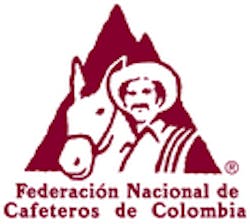FNC Adopts Measures To Protect Colombian Coffee Growers' Income
Bogota, February 7, 2016 (FNC Press Office) – Aware of the difficulties posed by El Niño to Colombian coffee farmers, the Colombian Coffee Growers Federation (FNC) adopted the following measures aimed at reducing the event's impact on the income of producers:
Impact Evaluation
The FNC began a field study through its Extension Service to assess the impact of El Niño. The basis of the study is a statistically representative sample involving over 7,000 farms throughout Colombia's coffee-growing departments.
The study addresses issues related to coffee quality and agronomic state of crops. It will be conducted once again when the first harvesting period of the year's first half begins.
It’s important to note that this diagnosis is vital and that it’s being conducted at the right time (the harvest's formation period).
Trade Measures
Given that one of the most notorious effects of El Niño on Colombian coffee growing is the higher proportion of lower-quality beans, the FNC will start compensating growers for such beans starting on February 15.
To fulfill this goal, the FNC will publish the reference price of lower-quality beans on a daily basis.
These decisions complement the measures adopted in 2015:
- The $30 discount per kilo for each percentage point or fraction of dry parchment coffee that exceeded 5% of beans affected by the coffee berry borer was abolished.
- The measure for calculating the yield factor in the purchase of dry parchment coffee was extended from 15 to 20 beans affected by coffee berry borer.
- Exporting beans that have a higher proportion of imperfections was authorized.To date, the FNC has sold 79,000 bags of coffee with imperfections.
Other Measures
Additionally, the FNC will lead meetings with the national government and municipal and departmental authorities in order to push forward issues related to restructuring loans in the country's most affected regions and implementing fertilizer support programs.
The FNC urges coffee growers who have been affected by El Niño to report their situation to the Local Committee for Emergency and Disaster Prevention and Attention (CLOPAD) in order to be able to access government support.
The FNC will call on the private sector, including exporters and the domestic industry, to participate in the construction of joint solutions to improve profitability of coffee growers.
Starting this week, Roberto Vélez, the FNC CEO, and his team will visit all of Colombia's coffee-growing regions to present these measures and seek joint solutions that involve all stakeholders.
